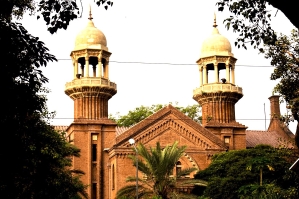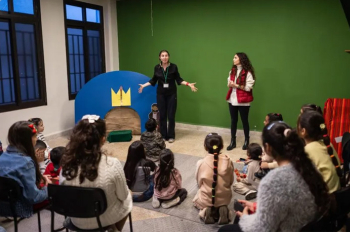
A high court in Pakistan has granted bail to a Christian woman imprisoned for more than a year over false accusations of blasphemy, her attorney said.
Christian attorney Lazar Allah Rakha said that Lahore High Court Justice Asjad Javaid Ghural on Thursday (Nov. 6) ordered the release of 29-year-old Stella Khawar on bail in two cases of blasphemy filed against her, as there was no evidence against her.
Section 497 of the Criminal Procedure Code entitles bail for a suspect on statutory grounds if there is no substantial progress in the conclusion of the trial and the accused is not responsible for inordinate delay, Rakha said.
Khawar, mother of a 5-year-old son, was arrested on May 12, 2024 from Kharota Syedan, in the Kotli Loharan area of Sialkot District, Punjab Province, and was charged under Section 295-A of Pakistan’s widely condemned blasphemy laws related to hurting religious sentiments, as well as Section 505 of the Pakistan Penal Code.
A local leader of the now proscribed extremist religio-political party, Tehreek-e-Labbaik Pakistan (TLP), had named her in the two cases through supplementary statements after blasphemous content was allegedly found written on currency notes in two separate incidents on Aug. 27, 2023 and Jan. 7, 2024, Rakha said.
Section 295-A calls for 10 years of prison for those convicted of intentionally outraging religious sentiments, while Section 505 relates to intentionally causing fear in the public and harming public tranquility and is punishable by imprisonment of up to seven years.
In judgments on both petitions, Ghural noted that Khawar was implicated in both cases merely on the basis of suspicion of the main prosecution witness, Hafiz Syed Furqan Ijaz, Rakha said.
“Moreover, despite the passage of nearly two years, the police have failed to submit the forensic report of a CCTV footage that it claimed showed the woman allegedly throwing the blasphemous material in a street,” he said. “During the bail proceedings, the high court noted that the grainy footage failed to accurately identify the woman and repeatedly asked the investigating officer to submit the forensic report, which was not made available.”
Due to insufficient evidence and the inordinate delay in the conclusion of the trial, the high court ordered Khawar’s release against surety bonds amounting to 200,000 Pakistani rupees ($706 USD) in each of the two cases, the counsel said. Her family was arranging the sureties, and they hope to reunite with her this week, he added.
Rakha, who has successfully defended several persons falsely charged with blasphemy, said he was thankful for legal advocacy organization Alliance Defending Freedom (ADF) International financing legal support and advocating for Khawar.
“Stella’s family is poor and were unable to engage good legal representation for their daughter, whose trial is being conducted in the Sialkot District Jail due to security concerns,” Rakha told Christian Daily International-Morning Star News. “I’m very hopeful that we will be able to win her acquittal in both cases in the upcoming hearings, because it’s clearly a case of no evidence as noted by the high court.”
Blasphemy and accusations of the crime have led to the extrajudicial killings of dozens of people in Pakistan since 1990. Rights groups have repeatedly criticized and called for the reform or repeal of the harsh laws, which date back to the British empire. Other punishments include a fine or prison term, depending on the specific offense.
Federal Minister for Law and Human Rights Azam Nazeer Tarar on Oct. 16 announced that the government was introducing procedural safeguards to prevent misuse of the laws and ensure timely justice by ensuring fair investigation and judicial sensitivity in blasphemy-related cases.
Human Rights Watch (HRW) stated in a June 9 report that Pakistan’s blasphemy laws were being systematically misused to target religious minorities, dispossess the poor and settle personal and economic disputes.
“Blasphemy accusations are increasingly weaponized to incite mob violence, displace vulnerable communities and seize their property with impunity,” states the 29-page report, “A Conspiracy to Grab the Land: Exploiting Pakistan’s Blasphemy Laws for Blackmail and Profit.”
In several cases, blasphemy accusations were used to target business rivals or coerce property transfers, according to the report. HRW added that the law’s broad and vague provisions allow it to be exploited with minimal or no evidence, creating a climate of fear among vulnerable groups.
HRW criticized Pakistan’s criminal justice system for enabling these abuses. Authorities rarely hold perpetrators of mob violence accountable, while police often fail to protect the accused or investigate allegations, it stated. In some instances, officers who intervene face threats themselves. Political and religious actors accused of inciting violence frequently escape arrest or are acquitted due to lack of political will or intimidation.
Pakistan ranked eighth on Open Doors’ 2025 World Watch List of the 50 countries where it is most difficult to be a Christian.





